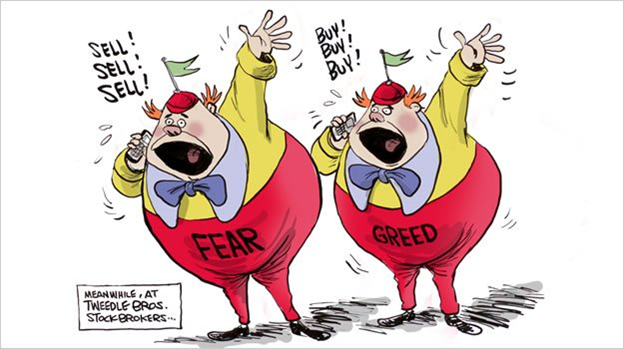\ ˈlan-ˌyap , lan-ˈyap \
: a small gift given to a customer by a merchant at the time of a purchase; broadly : something given or obtained gratuitously or by way of good measure

Rock Icicles, Acadia National Park, Anna, crazyintherain.com
Welcome to 2022 ... or is it still 2021?
Is it just me or does it still feel like 2021? Or maybe even 2020? I'm referring to the latest wave of uncertainty that has arrived along with the New Year. We have a challenging trifecta at play: inflation, market volatility, and projected increases in interest rates. I suppose I don't need to mention the brewing geo-political turmoil, on-going pandemic struggles, and our ever-present political divisions.
So now what? Read the "recycled" insight below on how to approach investing in trying times.
2022: Looking Back, Looking Ahead
Recycling isn't just for aluminum cans and newspapers. Sometimes, financial advisors find they need to revisit the fundamentals of investing to help Clients stay on track. Such is the case now when the markets are "having a moment." The following is the Acadia Investment Wisdom Statement which expresses our philosophy on how to be a successful long-term investor. Read, reflect, repeat.
INVESTMENT WISDOM STATEMENT
4 July 2020
"It isn't investments that make or lose money, it's investors."1
The purpose of this Investment Wisdom Statement (IWS) is to describe the various considerations that shape the investment approach of Acadia Financial Services.
It is our fundamental belief that investing is a highly personal decision, which will be different for each Client, and will change with the passage of time. The options, variables and considerations are seemingly endless, so this IWS seeks to bring focus to the primary areas that may have the greatest impact on the investor’s decisions. Perhaps the most important truth about investing: success is more about "who" than it is about "what." In other words, the investor needs to understand themselves (goals, risk tolerance, timeline, etc.), before they consider the investments. Far too often investors place their focus on the investing without first considering themselves. This IWS is used to inform the Acadia Risk Tolerance Survey and Client Guidelines, which record and direct the Client’s investment instructions to Acadia Financial Services.
The Fundamentals
Investing with wisdom requires understanding the basics. Here are the top seven considerations that are personal to each investor:
Economic Context
All investing occurs within a greater financial context. Much of what happens to investments resides outside the awareness and control of the investor. However, with wisdom and knowledge, an investor can maintain a long-term perspective and ultimately make progress toward their goals. Here are the enduring truths about the investing environment:
Worldly Perspective
Let's also consider the opposite of wisdom: foolishness. Here's what the world (news, social media, salespeople, etc.), says about how to be financially successful:
Questions about any of the above? Let's talk. Schedule an appointment and we'll ensure you and your investments are in alignment.
Laissez les bons temps rouler!
1. Jason Zweig, The Wall Street Journal, 2021
Mary's Recipe Corner
Quick (for a yeast bread) Sandwich Bread
Bill loves sandwiches and would be happy if all meals were served between two slices of bread. This recipe provides a quick way to make a great sandwich bread. The method for this bread is unlike any I had ever seen before. I was very impressed with the results and have used this recipe multiple times since first trying it in 2018. The loaves slice beautifully, and the recipe makes three large loaves. Any loaves you don't plan on using right away, you can freeze for future sandwiches, or you can half the recipe and make two small loaves. This bread is also great toasted.
Hope you enjoy it!
2 cups milk
4 TBSP butter
2 cups water
2 tsp salt
3 TBSP active dry yeast
4 TBSP sugar
12-14 cups bread flour
Grease 3 loaf pans. Warm the milk, water, and butter until 110 degrees. Pour in bowl. Add yeast, and sugar. Let sit 5 minutes. Stir in 4 cups flour and salt, and beat for 3 min with an electric mixer. Add 5 more cups of flour. Beat for 3 minutes. Stir in enough flour so the dough can be handled and isn't too wet. Knead and add flour as necessary to make a smooth dough. Divide the dough into three equal sized portions, cover with a towel and let dough balls rest 5 minutes. Take each dough portion and flatten into a rectangle the width of the long side of your loaf pans. (The dough's rectangle's shorter side will match the longest side of the loaf pan.) Tightly roll the dough up like a jelly roll and place loaves in greased pans. If you don't roll it tightly enough, you may end up with a hole running down the center of your loaf.
This is where the recipe gets interesting. Place the loaf pans, uncovered, in a cold oven, close door, turn the oven to 400 degrees and after 1 minute turn the oven off. Do not open the oven door. Let the loaves sit for 30 minutes. Then take dough out of the oven and preheat to 350 degrees. When the oven is preheated, return them to the oven and bake about 30 minutes. Check after 20 minutes, and tent with tinfoil if the top is at desired color. When done the internal temp should be about 180 (take temp on the edge, where the pan rim is, pushed to the middle of the loaf). After 5 minutes remove from pans and let cool on wire rack.
I hope this makes sense. Should you have any questions on this or any other recipe, email me, and I will do my best to help. Also, should you try any of the recipes, I would love to hear what you think.
Blessings,
Mary,
For Art's Sake
If you grow up in New Orleans you learn to appreciate art (and food and music and parades, etc.), so it's appropriate to share a bit of art with our readers.
The saying, "art imitates life," is exemplified in this cartoon. There's always a group of investors that are fearful, and another that is greedy. Typically, the fearful investor sells at the wrong time and the greedy investor buys at the wrong time.
So what is the lesson? Buy and hold, think long-term, ignore the noise, and talk to your advisor regularly. Let's not make this more complicated than it needs to be.

Fear and Greed, Cagle.com